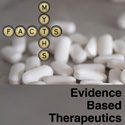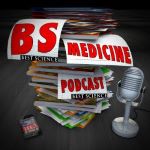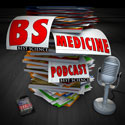How to Critically Appraise an RCT in 10 Minutes
Critical appraisal skills have really become as important as the use of a stethoscope or the ability to write a legible prescription. However, I know that the thought of reviewing an RCT can seem like an insurmountable task and in fact will put many people into a heavy coma.
Because of that I thought you might be interested in a “mini” book that I’ve just published through the iBook store.
It is entitled “How to Critically Appraise an RCT in 10 Minutes” – you should be able to see the link to the book below. It is only readable on a 2nd generation iPad or higher.
This ebook will hopefully show you an approach that gets at 95% (I made that number up) of what you need to read and look for when it comes to analyzing an RCT. The ebook has interactive figures and some audio commentary to help you through the content. The book is free on the iBook store.
As this is the first edition I would LOVE feedback on how to make it better. THANKS
You can find it at the iBooks store by going to the following link
How to Critically Appraise an RCT in 10 Minutes



